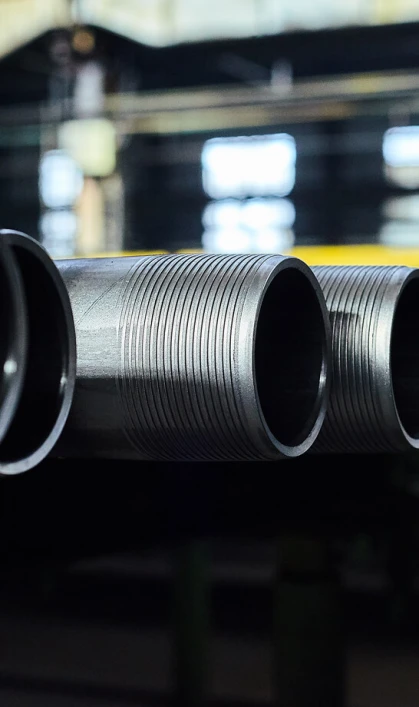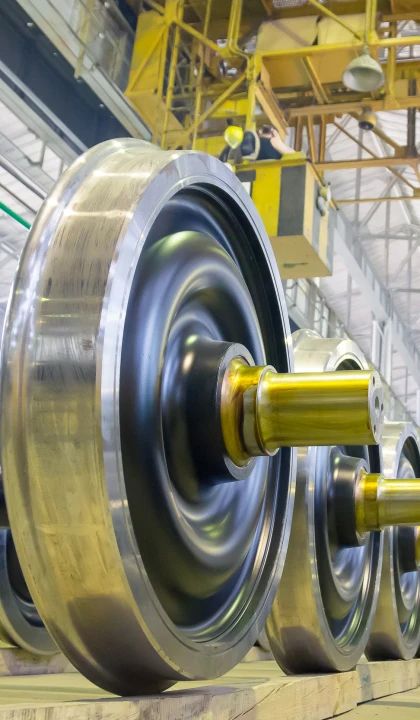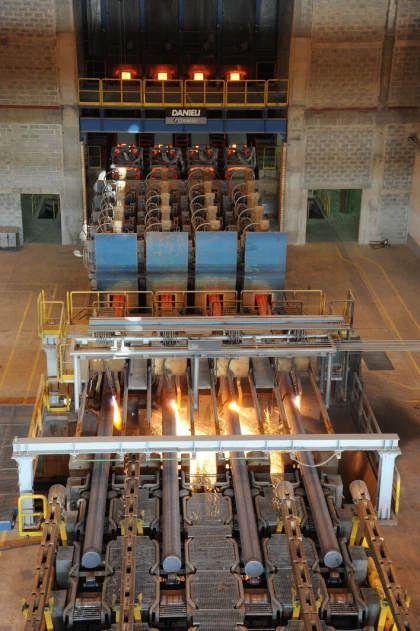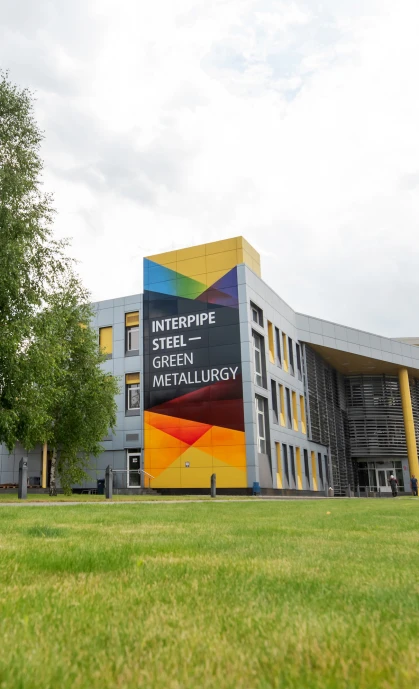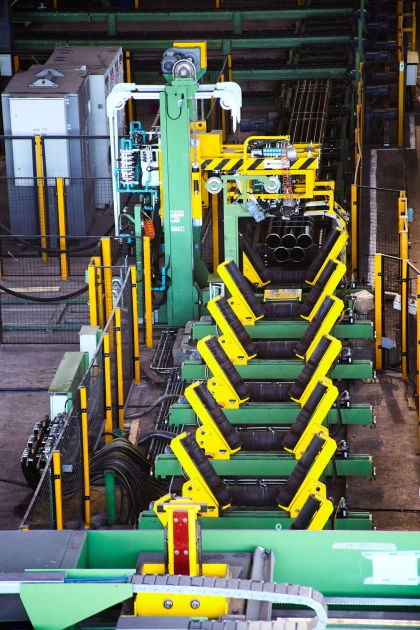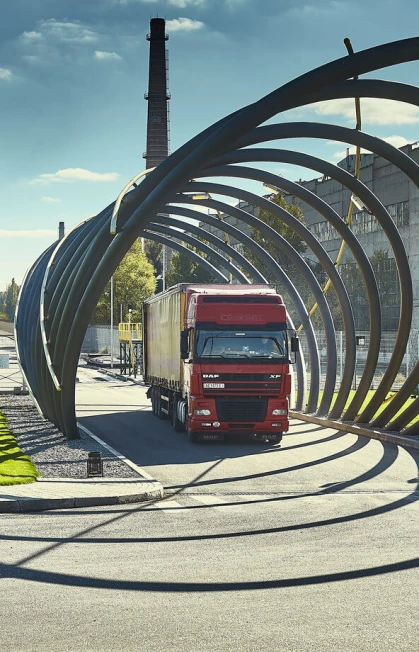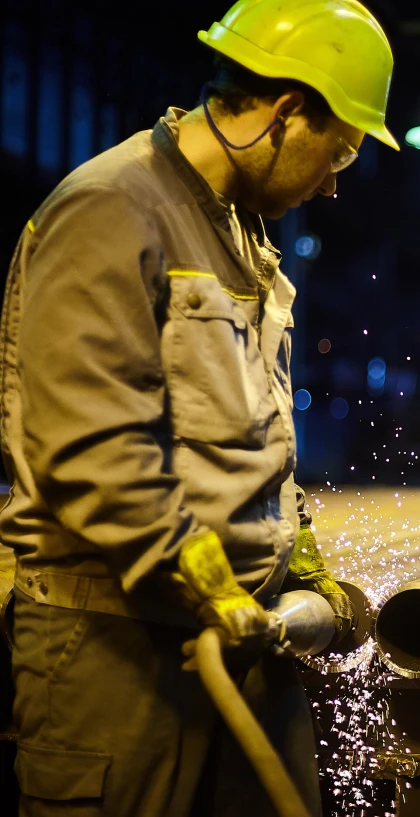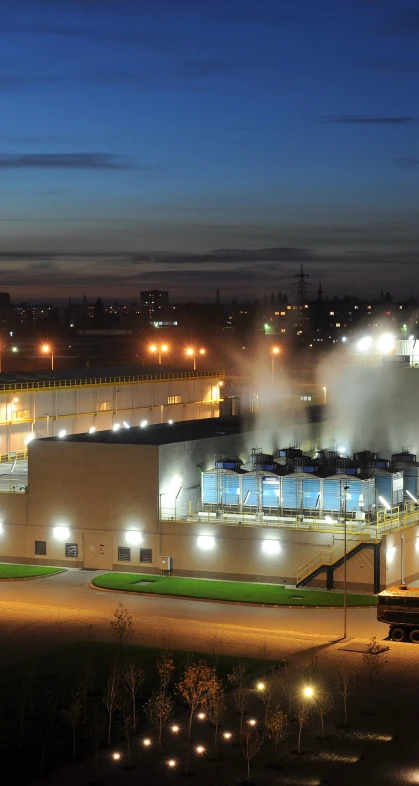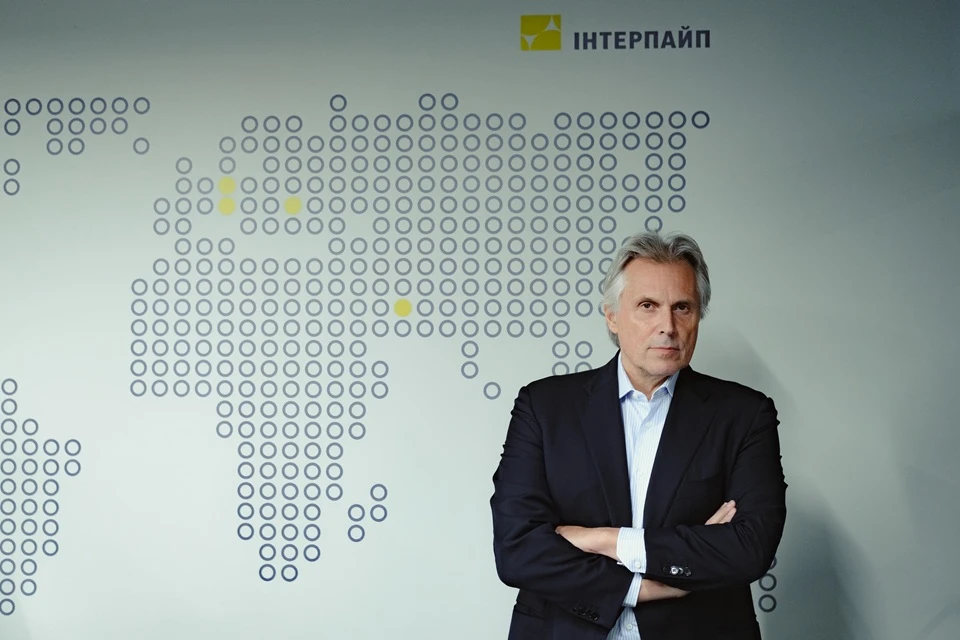About the advantages and disadvantages of Interpipe
- It is important for Ukraine and its economic development to attract top managers from the West. For the past 14 years, you have been working for multi-national pipe manufacturer Tenaris, heading its US business. Can you compare the corporate culture at Interpipe with that of your previous employer?
Tenaris is a great company, and I learned a lot while working there. It is difficult to compare Tenaris and Interpipe, as they differ in both scale and stage of development.
The three main features I like about Interpipe are the resilience, entrepreneurship, and flexibility of its employees. Over the past 10 years, the company has undergone an impressive transformation. Our products are now present in almost all markets around the world, whereas 10 years ago there was only one main market—the CIS. Today, we sell very little there. This shift is evidence of the company's ability to transform. Without this, we would be in a difficult position.
This is characteristic not only of Interpipe, but of the entire Ukrainian nation. People work in Nikopol under constant shelling. It's impressive. So, resilience, entrepreneurship, and flexibility are the traits that distinguish Interpipe from all the companies I have worked for in the past.
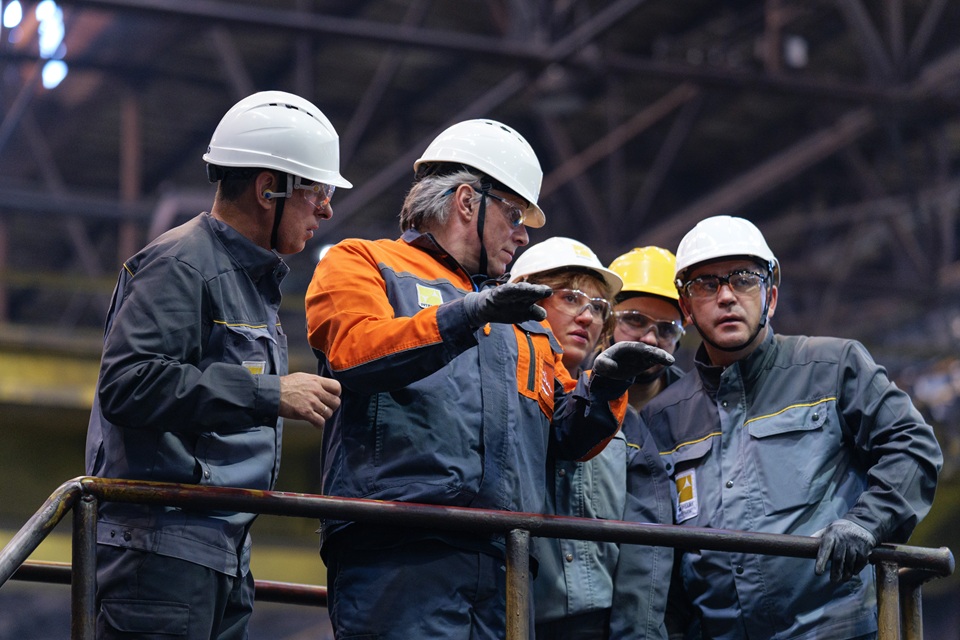
- What would you borrow from Tenaris' corporate culture for Interpipe?
- Interpipe does not need to copy anyone. Tenaris has more procedures and is more accustomed to following rules. In my opinion, we also need a little more discipline in production. We are strong, but not always consistent. Otherwise, I like Interpipe's corporate culture. I would like to preserve this entrepreneurship, flexibility, and speed.
- Sometimes Tenaris and Interpipe compete in the same markets. What is Interpipe's competitive advantage?
- Tenaris and Interpipe do indeed overlap in some markets, but they meet different needs.
Interpipe's competitive advantage is that we can operate in a relatively lower cost environment. Yes, this advantage is gradually diminishing as energy costs rise. Obviously, this is a consequence of the war.
The second advantage, as I have already mentioned, is that we are faster and more flexible than anyone else. Let me give you an example: during the war, we took a decision, built and commissioned a new heat treatment in Nikopol in the shortest possible time for a bit short of $30 million. In a less agile company, such decisions and such large investments would have taken much longer and probably never been executed during war time.
- In what areas does Interpipe lose out to the competition?
- Tenaris has been in this business for a long period of time. They got closer to their customers earlier than Interpipe. They were able to develop and differentiate products that we are not able to produce yet. This is the result of multi-year customer engagement, understanding their needs, and developing appropriate solutions. We will also follow this path, but at another level. Because Tenaris is Tenaris, Vallourec is Vallourec, and we are Interpipe.
We won’t copy anyone, but we also need to get closer to our customers. This is the key to reaching the global scale we strive for. To reach the scale we are aiming at, we also need to be more consistent in our production operations in terms of both capacity utilization and quality. Today, competition is very tough, and quality standards are very high. And if you look at our sales: 25% is Ukraine and 75% is exports. We are very dependent on exports to the global markets.
About risks and relations with Victor Pinchuk
- As for the risks, does Interpipe have the right corporate structure? And how reliable and stable is the company's owner for your career?
- I have never looked at risks. I have always looked at opportunities. And, frankly speaking, I believe there are opportunities here. As General Kellogg recently said at the YES forum: every war eventually ends. And this one will end too. This will be an opportunity for both Interpipe and me. Yes, there are risks, but there are no opportunities without risks.
I believe that these risks — personal and professional — can be managed to a large extent. So, my logic is this: if there is an opportunity and I can manage the risks at least to a good extent, then I have no problem. And that's why I decided to come here.
In addition, this is a huge opportunity for me to develop. I have worked all over the world, but never in Eastern Europe. I am interested in exploring the local culture and approaches.
So, there are many factors that make this decision attractive to me. Of course, I know that some people think I'm crazy. Meanwhile, inviting me to lead the company, Interpipe’s shareholders are sending a very clear message: "We believe in Ukraine and Ukrainians! We believe in the Ukrainian company!"
- How often do you discuss business with Viktor Pinchuk?
- At this stage of his life, Viktor Mikhailovich is involved in other matters. He is not involved in the operational management of the company. We have an excellent relationship, but he is not involved in day-to-day operations. Since May 15, when I started working here, he has never called me about work issues. You may not believe me, but it's true. He called me on my birthday asking how my adaptation is going on. I also called him to offer his help if needed but very few times.
In this regard, Interpipe is very similar to an international company. Interaction between shareholders and management takes place at the level of the CEO and the Board of Directors. That is, he has a board and can review all reports. In fact, we are not a public company, but the mechanism of operation is the same.
About Interpipe’s strategy in the context of trade wars
- Interpipe remained profitable during the war. What is the forecast for 2025?
- This year will also be profitable. Although we had an incident related to transformer damage and a technical emergency at steelmaking facility that is not related to the ongoing war in Ukraine. As a result, steel production has been stopped, and we had to import semis. Due to the boom in AI sector, the demand for transformers is very high worldwide, so it was quite difficult for us to solve this problem.
I was really worried because we needed spare parts that were in short supply. But the team did a great job — the repairs are well advanced, and we are conducting tests on the equipment before installing it in Dnipro. We plan to restart steel production by the end of October.
- Is this breakdown a "black swan" or a natural occurrence during the growth phase of production?
- When a problem arises, there are always several reasons. In this case, some of the reasons are related to the impact of the war on the national power grid. The stability of the Ukrainian power system is what it is. But in some cases, we could have acted differently, and the losses would have been smaller. That is why I am talking about discipline.
It is very important to have well-established working procedures. Tenaris is very strong in this regard. They work like an army. But, after all, the Ukrainian army is also extremely strong. So, I believe that we can do it.
- How do trade wars affect Interpipe?
- Obviously, the root cause of many problems in the steel industry is China. There is huge excess capacity there. The figures are not transparent, so it is very difficult to determine the extent of this surplus.
According to some estimates, the surplus is approximately 50–70 million tons. In the first 8 months of 2025 China exported more than 75 million ton. To have an idea of the magnitude of these exports, consider that the US, one of the largest steel users, consumes about 80 million tons.
With demand declining, these surpluses have been flooding the markets for years. The problem is also that China is not a market economy, so they are not playing on a level playing field.
The US was obviously the first to recognize the threat of such overproduction and the potential painful consequence not only on steel but on the entire manufacturing industry which is core to the national security of any independent economy. Consequently in 2018, the US designated steel as a matter of national security and imposed 25% tariffs applying the Section 232 code.
What happened next? Chinese steel flooded other markets. Now Europe is also starting to defend itself. It's a chain reaction. Global trade is collapsing. This is a problem for us because we are an export-oriented company.
How should Ukraine act? Ukraine also needs to establish protections internally and build what the Americans call “garden wall” to defend an industry that is going to be crucial for the future of the country. The last country to defend its domestic industry will be the first to lose it.
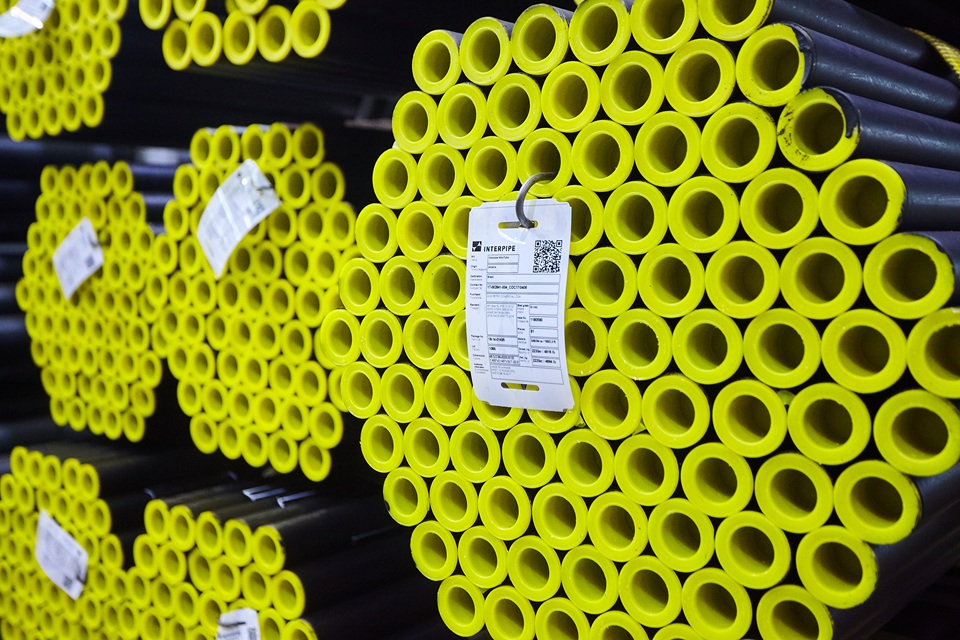
- In the first quarter of 2025, Interpipe's pipe sales in the US grew by 25%. So, despite the tariffs, Interpipe's pipe products are competitive in the US market?
- Sales to the USA are subject to seasonality and typically the last quarter of the year is not very strong, additionally Sec 232 tariffs were reinstated in February 2025.
Going forward we can compete, but it is very difficult right now. Ukraine is at a disadvantage: high energy costs, labor shortages. It is unfair to compare us to other Southeast Asian pipe producers. We are too small to harm the US domestic industry.
The Ukrainian government keeps correctly explaining that we are the "good guys" but for now it is not worth hoping for a separate agreement for Ukraine. First, the US must reach an agreement with larger partners. They do not want to set a precedent for Ukraine even despite all our arguments, but we need to keep advocating for a preferential treatment. Perhaps this will happen after a peace agreement or after the implementation of Ukraine–United States Mineral Resources Agreement.
- Europe's defense is the CBAM carbon tax, which will come into effect in 2026. What will change for Interpipe?
- Europe is a very important market for Interpipe. It is important that Ukraine gradually integrates into the EU, not only for trade, but for many reasons.
CBAM is a complex issue. On the one hand, Interpipe has fairly low CO₂ emissions per ton of pipe produced — half that of Chinese manufacturers for example.
This puts us far ahead in the ranking of environmentally responsible companies. We are well prepared, and it should be easier for us to compete with manufacturers who do not care about the environment. This aspect is another component of unfair competition.
But it would be selfish for Europe to look at it only in this light. Given the war, it would be right to postpone the introduction of CBAM for Ukraine. As I said, we have problems with energy costs and staff shortages. We are not competing on equal terms with the rest of the world.
- Do you think this task is more realistic than a customs agreement with the US?
- Yes, because we are in the process of integrating into the EU. Ukraine has excellent relations with Europeans, who, in turn, are showing greater flexibility on this issue than the US.
- What can Interpipe do on its part to be more competitive in these conditions?
- There is no way to fully compensate for the 50% duty on exports to the US. But partially, yes. There are three key points here: reducing costs, entering new markets, and government support (as happens in Europe for all major steel producing countries), for example, in terms of energy.
We need to be as efficient as possible. We need to reduce electricity consumption by using our assets more efficiently. This means that production facilities must be at maximum utilization and products must be of perfect quality. As for new markets, we need to develop prospects in several South American countries and in Canada. We also need to grow in the markets where we are already present. How? We need to clearly understand what the customer needs and selectively promote new developments that will set us apart from the rest. This will require investment.
About staff shortages, "dark factories" and foreign acquisitions
- How exactly do you plan to solve the problem of staff shortages and rising electricity prices?
- Recently, the Ministry of Economy of Ukraine held a meeting with all domestic steelmakers and iron ore miners to find a solution as to electricity prices. The minister said that they have several scenarios, developments, and appropriate solutions.
Staff shortages are a problem that we will solve by increasing efficiency and discipline. Automation will play a big role even after the war ends.
Therefore, we need to invest smartly in it. But even more important is learning how to attract, retain, and motivate the people who are available. Because people with experience are the most productive.
In these tragic circumstances, this is very difficult because they work in Nikopol. The right approaches are needed — management must be close to the people at the plant, setting an example, discussing problems, and finding solutions.
It is also important to involve veteran soldiers who have experience in logistics, mechanics, and electronics. They are very well trained. Veteran reinsertion into the workplace will play a crucial role.
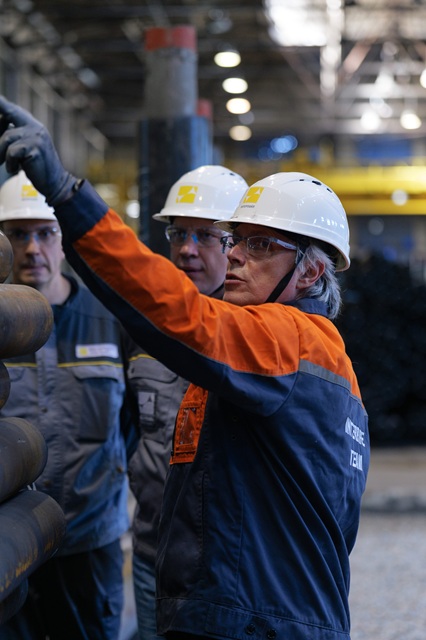
- What do you think about the concept of a "dark factory" that operates without people?
- I have heard that there are already many such factories in China. It is impressive; you won't see anything like it anywhere else. But this requires large investments and is not suitable for all industries.
It is suitable for factories that are involved in assembly. In our production, this is not possible yet. Even if you squeeze 100% out of automation, people will still be needed.
- One possible way to consolidate one’s position in the markets is by means of partnerships. Is Interpipe considering strategic partnerships with European steel companies, the purchase of foreign assets, or an IPO?
- The best guarantee of Interpipe's long-term success is the efficient use of our assets. As for M&A, we are constantly looking for opportunities for external growth. Financially, we can make acquisitions and are always considering options.
But two factors need to be in place: right fit, for example opportunity of vertical integration, and the absence of trade restrictions.
As for strategic partnerships or IPOs, in my opinion, it is untimely to think about this issue until the war is over. Interpipe is a good asset. It may be of interest to strategic investors or portfolio investors during an IPO. But I have never discussed this with the Board of Directors.
- What is the main lesson you have learned over the past year?
- Adaptation to war. When Kyiv suffered one of the most massive rocket attacks and drone strikes in July, I was in the city that evening. Being in a bomb shelter during the air raid alert, I thought: “Tomorrow there will be chaos, no one will be able to do anything.”
But at 8:30 in the morning everything was as usual. I had a meeting at Naftogaz, everyone was at their workplaces, discussing business. And a few hours earlier, hundreds of drones and missiles had bombed the city. One night under fire is okay. But then follows the second one, the third one, thousand nights have passed. I don't know exactly what it is – about the Ukrainian people, or about the ability of humans as a species to adapt. But it's impressive.
